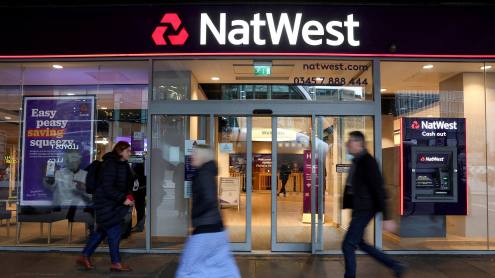The US government injected $250bn into its banking sector and took large stakes in nine of its biggest banks. Earlier in the month the US Congress finally passed the disputed $700bn Troubled Asset Relief Programme, which was put in place to hoover up toxic debt and encourage banks to start lending to one another again. US Treasury secretary Hank Paulson labelled the bail-out “objectionable” but said the government had little choice.
The US bail-out followed a similar plan in the UK. The UK government poured £37bn ($64bn) into the banking sector and could end up with substantial stakes in Royal Bank of Scotland (60%) and Halifax Bank of Scotland/Lloyds TSB (43.5%). The UK will also guarantee £250bn of loans and the central bank will make at least £200bn available for banks to borrow. UK prime minister Gordon Brown promised that the government would take an arm’s-length approach to running the banks, but immediately put a restriction on dividends and vowed to curb executive pay. RBS chief executive Fred Goodwin and HBOS chief Andy Hornby stepped down, and the government will appoint non-executive directors.
Governments across Europe also sought to shore up their financial systems, simultaneously announcing blanket guarantees on deposits and loans. The problem was particularly acute in Iceland, where the government was forced to nationalise the nation’s three biggest banks or face financial ruin. Despite the announcement of the rescue packages, stock markets across the world continued their downward spiral, as investors feared an imminent recession.
LSE CONTINUES BAIKAL DEAL DESPITE LEHMAN'S DEMISE
The London Stock Exchange (LSE) is set to go ahead with Baikal, the dark pool trading platform unveiled in June, despite the collapse of Lehman Brothers, LSE’s chief partner in the project.
Speaking at a conference in October, Andrew Bowley, formerly head of the product design team at Lehman Brothers, who worked on the Baikal project, said that discussions with the LSE were ongoing following Nomura International’s acquisition of the bank’s European investment banking and equities operation.
Under the original arrangement, unveiled in June, Lehman Brothers would provide the technology and liquidity for the new platform.
“It was always our intention to bring other parties on board,” a spokesperson for the LSE said.






